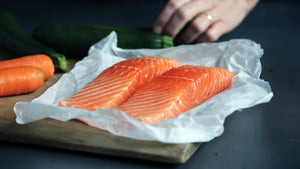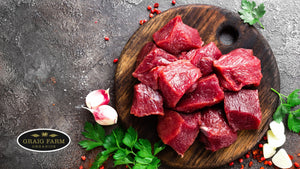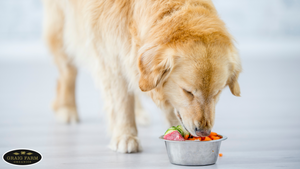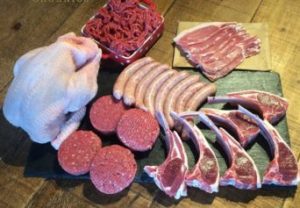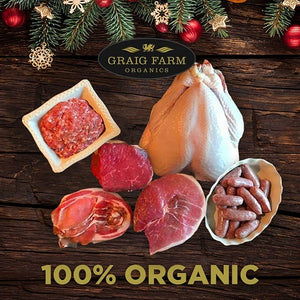Organic Poultry Farming: A Guide

Did you know that poultry accounts for almost half of the meat purchased in the UK? It’s one of the most widely consumed meats in the world, and around 2.2 million chickens are eaten daily by British people alone.
Chicken and turkey production often make the headlines because of the poor conditions the birds are forced to live in. From overcrowded sheds to de-beaking, factory farms use a variety of inhumane practices.
So what is organic poultry farming and how does it differ from factory farming?
Living conditions
Unlike the industrially farmed birds that live in cramped, unhygienic conditions, organically reared birds must be produced to the highest standards of animal welfare. This includes having access to the outdoors, living in a spacious environment and eating nutrient-rich feed that’s free from chemicals and GMOs.
On factory farms, chickens spend most of their lives in confinement and there can be up to 30,000 of them housed in a single shed. These conditions cause a whole raft of problems for the animals. Without sufficient room to move around, they’re forced to live in their own waste and outbreaks of disease are common. Because of their cramped conditions, they often become aggressive and are de-beaked without anaesthetic to stop them from harming each other. Abnormal skeletal development, lameness, muscle weakness and nutrient deficiencies are also typical issues caused by these living conditions.
Organic chickens and turkeys must live in much healthier environments. Organic standards are in place so that birds are free to roam with continuous access to the outdoors. As their sheds house far fewer birds, the animals aren’t under immense stress and can engage in natural behaviours like foraging, dust bathing and running.
Chemicals and drugs
Poultry birds on non-organic farms are given routine antibiotics to prevent diseases that are caused by their unsanitary conditions. This preventative measure means that when we eat these animals, we’re also ingesting traces of these drugs.
Studies have also found that routine antibiotics in farming are contributing to antibiotic resistance. This means that some bacteria can fight the effects of antibiotic drugs, making it harder to treat diseases and infections in humans.
On the other hand, organic chickens and turkeys are not routinely given preventative antibiotics, and these drugs are only used to treat sick animals. However, because of their healthier living conditions, antibiotic treatment is not often required.
Here at Graig Farm Organics, we take animal welfare very seriously and our organic poultry is produced to high standards.
- Tags: Organic Farming
- Graig Farm
